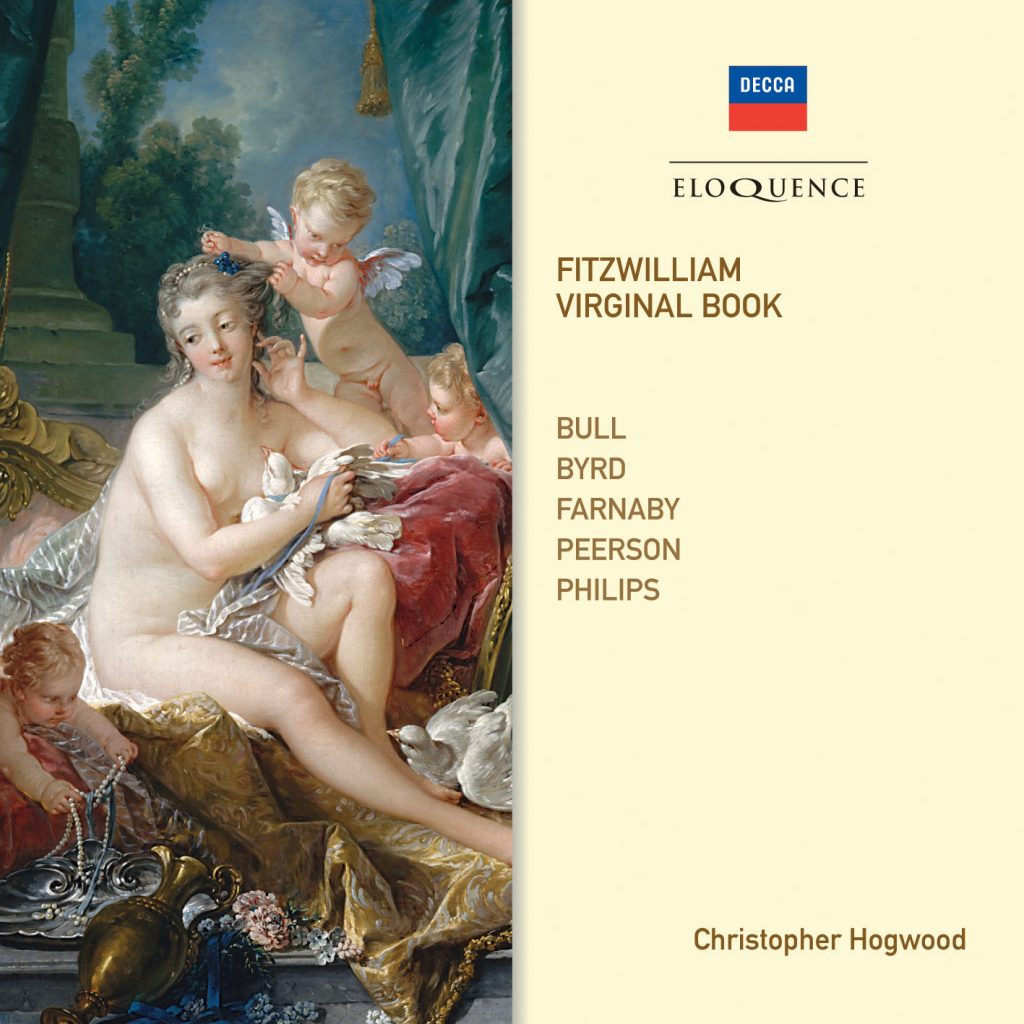The Fitzwilliam Virginal Book is one of the most important collections of keyboard music of the 16th century. Recorded to accompany the Folio Society’s publication, ‘Music at Court’ (also written by Christopher Hogwood), this collection was imaginatively distributed to the Society’s members, together with suitable vintages to accompany the literary titles. To suit the music – by Farnaby, Byrd, Philips, Peerson and Bull, together with anonymous compositions – the recordings were made on different keyboard instruments: virginal, organ, harpsichord and spinet. The recording received critical acclaim and was a Gramophone Award nominee in 1983. This marks its first international release on CD. The booklet includes the original LP sleeve notes as well as a new introduction for the reissue penned by Hogwood himself.
CD1
GILES FARNABY
Fantasia
The Flatt Pavan
ANON.
Can shee
Alman – The Irishe Dumpe – Watkins Ale
WILLIAM BYRD
A Gigg
WILLIAM INGLOTT
The Leaves bee greene
PETER PHILIPS
Amarilli di Julio Romano
Galiarda Passamezzo
MARTIN PEERSON
Alman – The Primerose – The Fall of the Leafe
GILES FARNABY
Tower Hill – A Masque – A Toye
Pavana
Galliardo
WILLIAM MUNDY
Robin
ANON.
Nowel’s Galliard
GILES FARNABY
Giles Farnaby’s Dreame – His Rest – Farnabye’s Conceit – His Humour
CD 2
WILLIAM BYRD
John come kisse me now
The Queenes Alman
JOHN BULL
In nomine
Fantasia
PETER PHILIPS
Pavana and Galiarda ‘Pagget’
WILLIAM BYRD
Pavana and Galiarda ‘Delight’
La Volta – Alman – Wolseys Wilde – Callino Casturame – La Volta
WILLIAM TISDALE
Pavana ‘Clement Cotton’
GILES FARNABY
Loth to Depart
Christopher Hogwood, virginal, organ, harpsichord, spinet
Recording Producer: Peter Wadland
Balance Engineers: John Dunkerley, John Pellowe
Recording Locations: Knole, Sevenoaks, Kent, UK, 29 April 1981 (organ), Ham House, Petersham, Surrey, UK, 7–9 May 1981 (virginal, spinet), Fitzwilliam Museum, Cambridge, UK, 11–12 May 1981 (harpsichord)
‘The present performances, in a recording of exemplary fidelity and clarity, are shapely and always alive. Hogwood can preserve a long line where needed, or infuse an infectious springiness into dance tunes like ‘Watkin’s ale’. Decorative passages are fluently played.’ Gramophone

